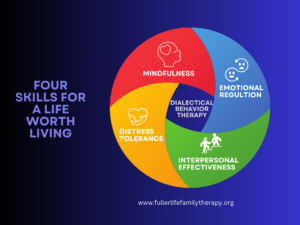Hell Hath No Fury… Understanding Women’s Anger
What comes to your mind when you think of an angry man? Powerful? Intimidating? Persuasive? How about an angry woman? Emotional? Hysterical? Bitchy? Anger is one of those emotions that can be challenging to express. It also appears to have a large divide in gender socialization.
Arizona State University and the University of Chicago conducted a study to assess how people perceive anger in women versus anger in men. They had 210 undergraduate students participate in a computerized mock-jury simulation with five other “jurors”. In the scenario, one of the jurors (either male or female), called the “holdout”, would disagree with the participant’s opinion while the other four would agree. When the male holdouts expressed anger in the online conversation, the research participant showed less confidence in his or her opinion. However, when the female holdouts expressed anger, the participant became significantly more confident in his or her opinion. This happened even though the male and female holdouts made identical arguments.
According to Salerno and Peter-Hagene (2015), these findings suggest that expressing anger can lead men to gain influence over others but lead women to lose influence. It is unclear why people perceive anger differently in men and women, but it is clear that there is a difference to the disadvantage of women.
Sandra Thomas, researcher at University of Tennessee-Knoxville, spent 15 years studying women’s anger among Caucasian and African American women in the U.S., as well as women in Turkey and France, and asked the following questions.
What Makes Women Angry?
Thomas (2010) found that most women’s anger was related to “interpersonal interactions in which others deny women power or resources, treat them unjustly or behave irresponsibly toward them”.
How is Anger Experienced for Women?
The women in Thomas’s study expressed that anger is a confusing mix of feelings, and deeply connected with hurt, sadness and disillusionment. The women wanted – they wanted the people they cared about to show the same care for them.
(How) Do Women Express Anger?
Thomas found that only 9% of women reported that they would express anger to the person making them angry. Instead, the women would ruminate on their anger, leading to more resentment. It is not surprising, then, that few participants reported having female role models who expressed anger in healthy ways.
Salerno and Peter-Hagene’s study as well as Thomas’s 15 years of research suggest a need for both the broader society as well as women specifically to gain a deeper understanding and appreciation of anger.
A New Way of Looking at Anger
Karla McLaren, author and researcher, says that, when we work with anger, it can be our ally and help us become more authentically ourselves. She writes that anger’s job is like an “honorable sentry” who helps set effective interpersonal boundaries and maintain a sense of justice for yourself and for others. According to McLaren, suppressing anger leads to poorly defined boundaries between yourself and others. On the other hand, unhealthy anger expression, such as “exploding”, can lead to damaging relationships with others. She recommends taking a middle path called “channeling”, which means slowing down to listen to your emotions and then “completing the actions your emotions require so that they can recede naturally and gracefully”.
When you notice anger rising after being insulted or receiving unfair treatment, the questions McLaren suggests asking yourself are “what must be protected?” and “what must be restored?”
How you answer those questions will give you the information you need to act in a way that is empathic and authentic.

Contributed by
Supervised by Amy Fuller, PhD, LMFT-S
Resources
http://karlamclaren.com/a-new-option-for-working-with-your-emotions/
https://works.bepress.com/sandra_thomas/24/
https://www.psychologytoday.com/blog/fulfillment-any-age/201511/why-dont-we-trust-angry-women
http://psycnet.apa.org/?&fa=main.doiLanding&doi=10.1037/lhb0000147









